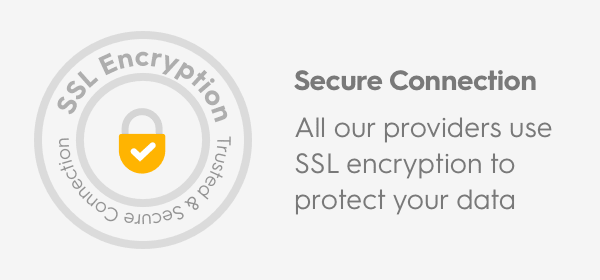Blockchain Technology and Its Role in Personal Security
As someone who actively follows technological advancements, I see blockchain technology as a game-changer for personal security. it has evolved from powering cryptocurrencies like Bitcoin to becoming a revolutionary tool for securing our personal data and digital interactions. In this article, I’ll dive into how it actively enhances personal security and why it matters in today’s interconnected world.
What Is Blockchain Technology?
it serves as a decentralized and immutable digital ledger. It records transactions across multiple systems, ensuring transparency and security. Each record, or “block,” connects to the previous one, creating a secure “chain.” Unlike traditional databases, it eliminates the risks of centralized data storage by distributing the information across a network of nodes.
How Blockchain Enhances Personal Security
The digital age has made our lives more convenient, but it also exposes us to cyberattacks, data breaches, and identity theft. Blockchain technology actively addresses these challenges by decentralizing data storage and implementing robust security measures.
1. Strengthening Identity Protection
Blockchain transforms how we manage identity. Traditional identity systems store sensitive data on centralized servers, making them vulnerable to hacks. With It, you gain control over your identity by securing your personal information in digital wallets.
Instead of relying on passwords or PINs, blockchain-based identity systems use private keys to verify users. These keys eliminate the need for sharing sensitive data with third parties. By shifting the control to individuals, it reduces the risk of identity theft and strengthens online security.
2. Securing Personal Data
Every day, we share personal information on platforms like social media, e-commerce sites, and apps. This scattered approach to data storage increases vulnerability. it offers a more secure alternative by decentralizing data and putting you in control.
Using it, you can store data securely and grant access only to authorized parties through smart contracts. This transparency ensures your data remains safe and under your control. Instead of relying on trust, it actively enforces security protocols, safeguarding your personal information from misuse.
3. Defending Against Cyberattacks
Cyberattacks target centralized systems, exploiting their single point of failure. Blockchain’s decentralized architecture changes the game. By distributing data across multiple nodes, it makes it nearly impossible for hackers to compromise an entire network.
If someone attempts unauthorized access, the blockchain’s transparency and cryptographic protections immediately detect and block the intrusion. This proactive approach deters attackers and ensures a robust defense against cyber threats.
4. Revolutionizing Online Transactions
Online transactions often expose us to fraud and data breaches. it improves transaction security by replacing intermediaries with a secure, transparent system. Every transaction is recorded on the blockchain, creating a tamper-proof trail.
Blockchain not only supports cryptocurrencies but also enables secure smart contracts. These contracts automate transactions, releasing funds only when specific conditions are met. By doing so, it ensures safer and more reliable online payments.

5. Securing IoT Devices
The Internet of Things (IoT) connects devices, from smart home gadgets to wearable tech. However, this connectivity increases vulnerability to cyberattacks. Blockchain steps in to safeguard IoT devices by securing their communication and preventing unauthorized access.
Blockchain’s decentralized framework encrypts data exchanges between devices, ensuring only verified entities can access the network. This proactive measure protects IoT ecosystems and enhances overall security.
Why Blockchain Outperforms Traditional Systems
Blockchain’s active approach to security gives it a clear edge over traditional systems. It decentralizes data, eliminating single points of failure. By encrypting every transaction and maintaining a transparent, tamper-proof ledger, blockchain creates trustless systems where security doesn’t rely on third parties.
Additionally, blockchain empowers individuals by returning control over personal data to its rightful owner—you. You decide who accesses your data and how it’s used, making it harder for bad actors to exploit your information.
Challenges Blockchain Must Overcome
While blockchain offers immense potential, it’s not without challenges. Implementing blockchain solutions can be expensive, and the technology must overcome scalability issues to handle larger networks efficiently.
Education also plays a key role. For blockchain to succeed, more people need to understand its benefits and adopt it in their daily lives. Without widespread adoption, its transformative potential remains untapped.
The Future of Blockchain and Security
Blockchain actively shapes the future of personal security. Its adoption is growing across industries, from healthcare to finance, where secure data management is critical. Governments and businesses are also exploring blockchain for safeguarding sensitive information and streamlining operations.
Imagine a world where identity theft becomes obsolete, data breaches are a thing of the past, and online transactions operate seamlessly with unparalleled security. Blockchain brings us closer to this reality, providing tools to protect and empower individuals.
Final Thoughts
Blockchain technology has stepped up as a powerful force in personal security. It strengthens identity protection, secures personal data, defends against cyberattacks, and transforms how we conduct online transactions. By actively decentralizing and encrypting information, blockchain offers a level of security that traditional systems struggle to match.
As someone who values security and privacy, I’m excited about the future of blockchain. By adopting this technology, we can take control of our digital lives and create a safer, more secure online world. Blockchain doesn’t just enhance personal security—it redefines it, giving us the tools to protect what matters most.
Read More: Understanding Phishing Scams: How to Prevent Them


